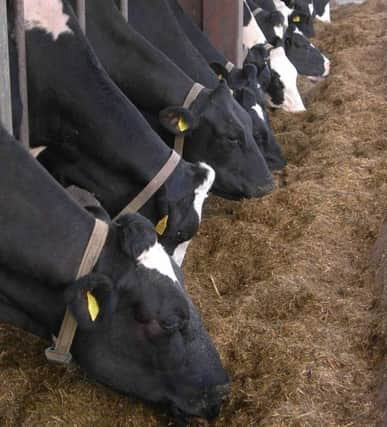UFU position on TB eradication


Last week we summarised our position on wildlife and this week we cover governance and research.
The answers to the questions have been shortened to fit UFU Watch. The consultation and answers in full are available at www.ufuni.org
Governance
Advertisement
Advertisement
Do you agree with the proposal for new partnership structures to oversee the bTB Programme and to help both stakeholders and Government work together to eradicate the disease?
Yes. In the first instance, the UFU would like to express our members’ frustration and concern at DAERA actively seeking to recruit members for the TBEP whilst the current consultation on the formation of the TBEP is still ongoing. This process has concerned our members that stakeholder views on the remainder of this consultation do not matter and that DAERA will proceed as it sees fit without consideration of stakeholders’ views. This must not be the case.
The above point made, the UFU is in favour of the establishment of the proposed new governance structures. The UFU is in favour of a national governance body to scrutinise and provide guidance for improvements to the TB programme.
Our members are concerned that as this body has only an advisory role that it may be unable to deliver on its proposals and recommendations. However, such a result would merely leave us where we currently are (albeit with a higher cost to DAERA). Ultimately, our membership is in favour of better communication with DAERA and oversight of programme delivery and acknowledge that the success or failure of the TBEP will depend on the calibre of its members.
Advertisement
Advertisement
To this end, its existence and membership should be kept under review based on the added value of results delivered.
Committees are in favour of establishing REPs and DRTs as it is considered necessary that communication between DAERA and farmers at a local level is improved.
At this point, our members have asked the UFU to express their concern that it is becoming virtually impossible for farmers to have a face to face or even verbal conversation with DAERA veterinary officials at DVO level and farmers wish to see this situation reversed in order to improve communication, relations, and understanding between farmers and DAERA staff.
Do you agree with the three tiered approach at a national, regional and local level?
Advertisement
Advertisement
Yes. It is the opinion of our membership that the development of this approach will provide improved communication and knowledge transfer at various levels of TB control.
Our membership advocate that the farming representatives on each body should be in positions where they can act as conduits and multipliers to summarise views and opinions of industry to veterinary staff and to effectively communicate information from veterinary staff to a wider industry audience.
Do you agree with the membership of each tier as proposed?
No. Our membership has concerns that as DAERA will select the representatives from the farming community, the individuals may be selected because their views are more aligned to DAERA’s views than reflective of the views of those they are supposed to be representing. To address this, our membership would like to see democratic farming bodies having the ability to nominate representatives to fill these positions so that those selected have the trust of industry to represent their best interests. Our membership also questions the relevance of a scientist on the TBEP as the science is all publically available and a scientist is not considered to be a relevant stakeholder in relation to TB eradication implementation. Our membership would prefer to see the scientist position removed and replaced by an additional farmer representative.
Research
Do you agree that the TBEP should be recognised as a significant stakeholder in the research agenda and should be able to input into the identification of gaps and the research commissioning process?
Yes.
Do you agree that a representative(s) from the TBEP should sit on the steering group which will oversee the proposed new programme of bTB research?
Yes.